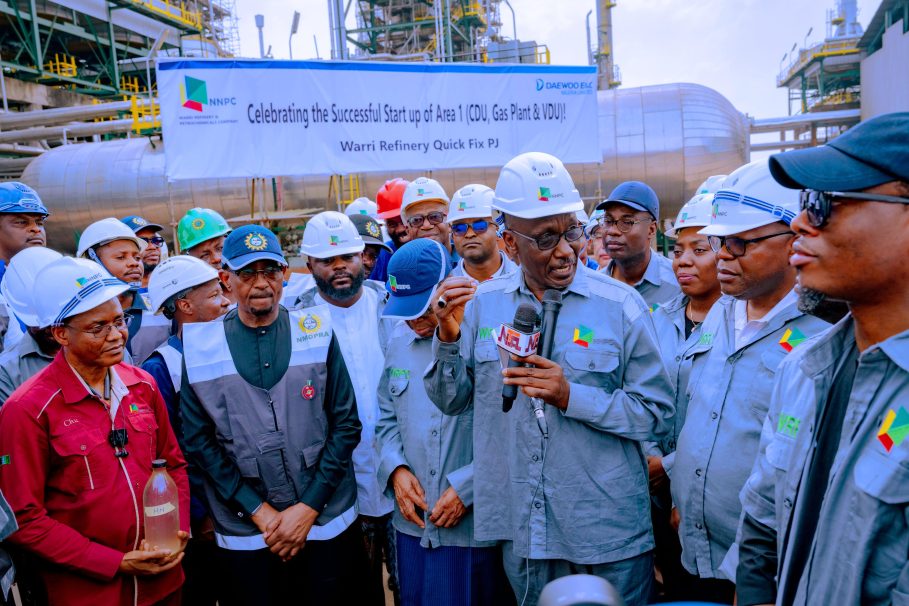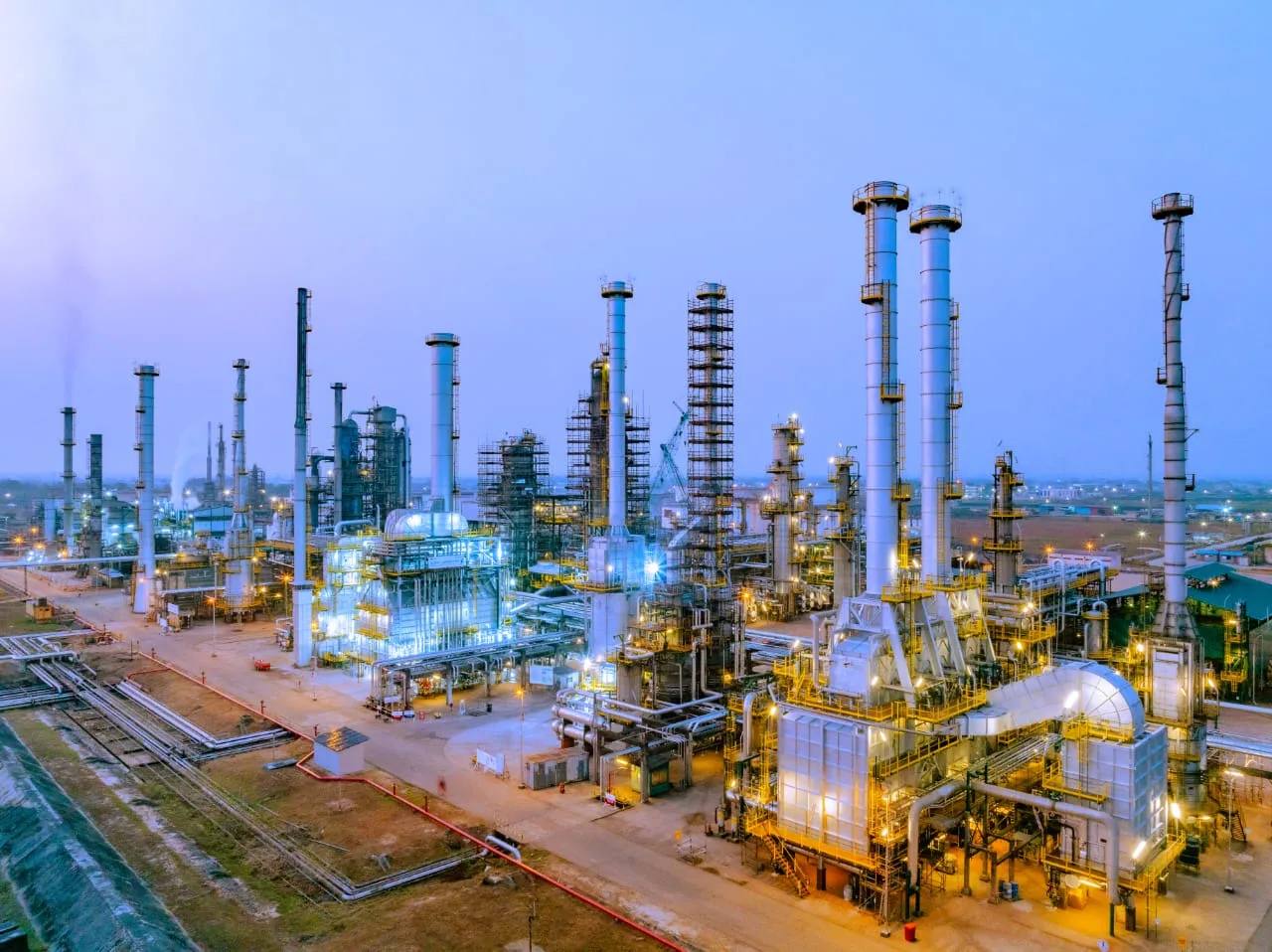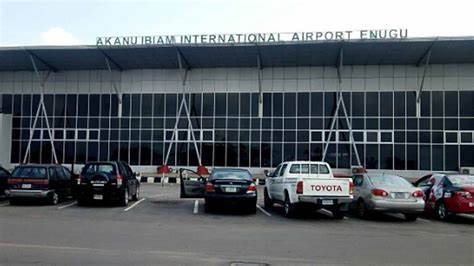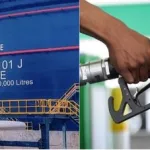As the Nigerian government celebrates the resumption of operations by Port Harcourt and Warri refineries, experts have raised concerns about the guarantee of steady supply of crude oil to the refineries given the foreign loans tied to crude.
They, therefore submitted that for the two refineries and other domestic ones, including Dangote, to have adequate supply, there is need for deliberate efforts to boost crude oil production.
Join our WhatsApp ChannelEconomic expert, Dr Paul Alaje, who commended the recommencement of operations of the Port Harcourt and Warri refineries, however, stated that there is no guarantee of steady supply of crude to the refineries due to loans.
Alaje, who appeared on Channels Television’s Breakfast Show, Morning Brief, on Tuesday, emphasised that production is all about maintaining the supply chain. According to him, it is only when they can mitigate the supply chain challenges that reduction in prices of petroleum products can be achieved.
Prime Business Africa reports that the Nigerian government on Monday announced that the Warri Refining & Petrochemicals Company (WRPC) has resumed some operations. This came after almost a decade of shutdown.
The refinery which is located in Warri Delta State, was inaugurated in 1978 when General Olusegun Obasanjo was Head of State. It has the capacity to produce 13,000 tones of polypropylene and 18,000 tonnes of carbon black annually.
The federal government had in August 2021, approved a contract award for the rehabilitation of Warri and Kaduna refineries at $1.5 billion.
Group CEO of Nigeria National Petroleum Company Limited (NNPCL), Mele Kyari, said the Warri oil refinery will for now operate at 60 per cent capacity.
According to Kyari, the refinery has three stages, but they have resumed with stage one called “Area one”, which is capable of producing AGO (diesel), Kerosene, and naphtha among others.
READ ALSO: Nigerians Divide As Warri Refinery Resumes Operation
In November, the NNPCL also announced the resumption of operations of the 60,000 barrels per day Port Harcourt refinery.
Kyari, who assured that the Kaduna refinery will soon come on stream, boasted that with the development, the country will become an exporter of petroleum products.
However, Alaje, who is the Chief Economist and Partner at SPM Professionals, while highlighting the potential challenge of crude oil supply to the refineries, recalled that prior to the commencement of supply of petroleum products, the 650,000 barrels per day Dangote Refinery resorted to importation to meet its required crude feedstock.
He asked what is the guarantee that the refineries are going to have crude supply for production given the fact that certain amount of it has been pledged to foreign lenders who gave the Federal Government loans.
“What is the guarantee that that we are going to have crude for these refineries in the light of the fact that we have pledged some of our crude to those who are giving us loans?,” Alaje queried.
“So for me, if you are able to plan it from end to end, that is, from the exploration to making it available in the filling stations, then we can say that we can deal with the supply side challenge,” he emphasised.
On the claims that the resumption of operations of the refineries, will lead to significant reduction in prices of petroleum products, Alaje pointed out that it is only when the refineries are able to operate consistently and supply to the market that the authorities will be able to deal with the pricing issue which is still very high.
On his part, Olabode Sowunmi, Energy Analyst and CEO of Cab Tree Limited, highlighted challenges that Nigeria is having with crude oil production which affect output, including crude theft. He also noted that loans tied to crude supply, joint venture agreements, and production sharing contracts equally affect the amount of crude available for supply to local refineries.
Sowunmi, who noted that there wasn’t artificial scarcity during the 2024 Christmas season against the usual occurrence due to innovations to reduce prices by Dangote Refinery , NNPCL and other marketers, said the prices will not go down to as low as N300 or N200 per litre given the prevailing prices of crude oil in the international market.
Omonigho Onotocha, Associate Professor at Federal University of Petroleum Resources, Efurum, Delta State, said Warri refinery has an advantage in production of some petrochemicals which are used by companies.

READ ALSO: Major Events That Shaped Nigeria’s Oil and Gas Sector In 2024
Speaking on boosting oil production, Onotocha said there is need to explore many untapped marginal fields.
Making reference to assertions that the country needs to produced at least 4 million barrels of crude per day to meet demands, he said it is possible when there is right leadership steering the process.
He also stressed the need for proper engagement with host communities, to stop issues of crude oil theft, and pipeline vandalism among others.
Victor Ezeja is a passionate journalist with seven years of experience writing on economy, politics and energy. He holds a Master's degree in Mass Communication.



















Follow Us